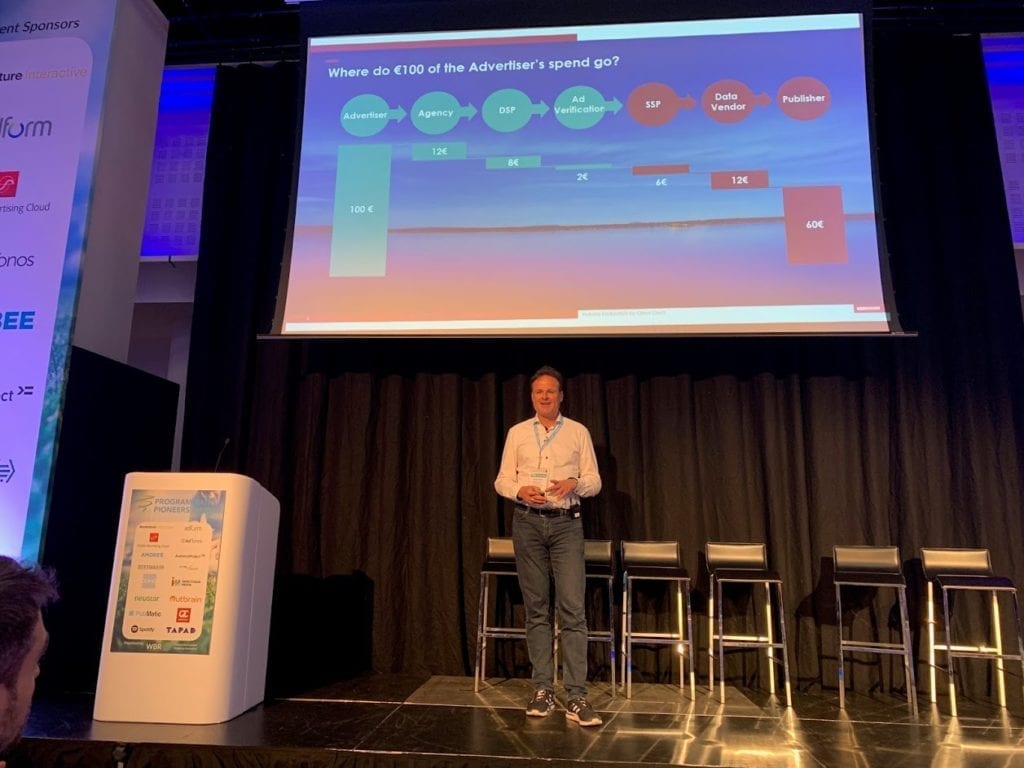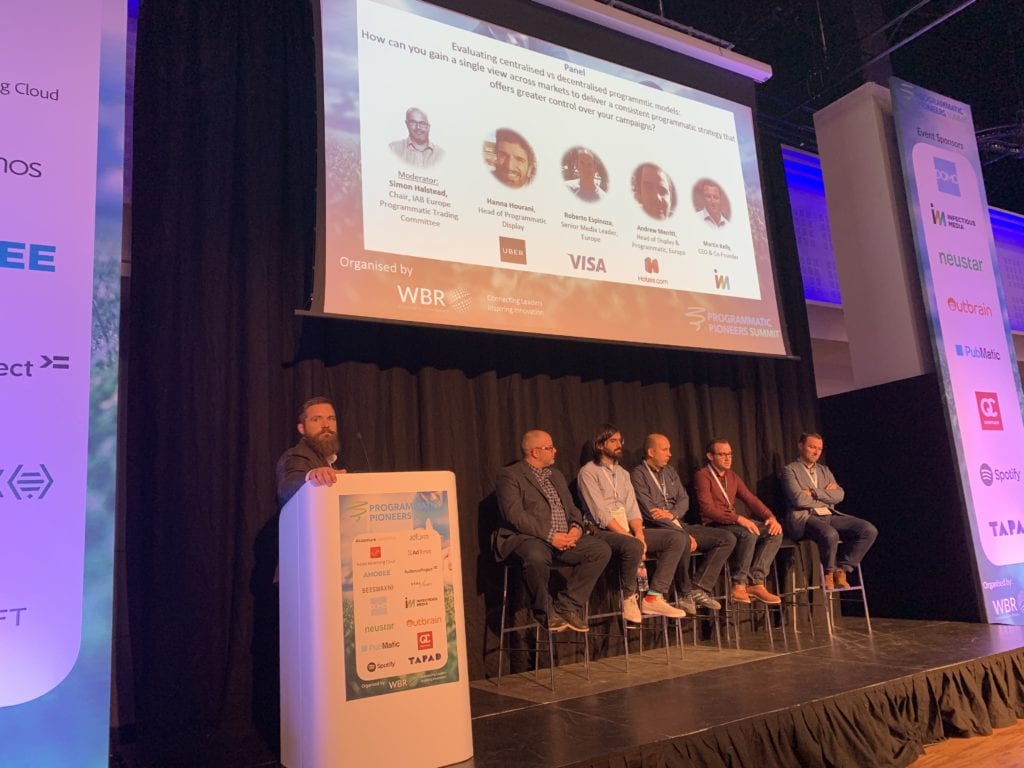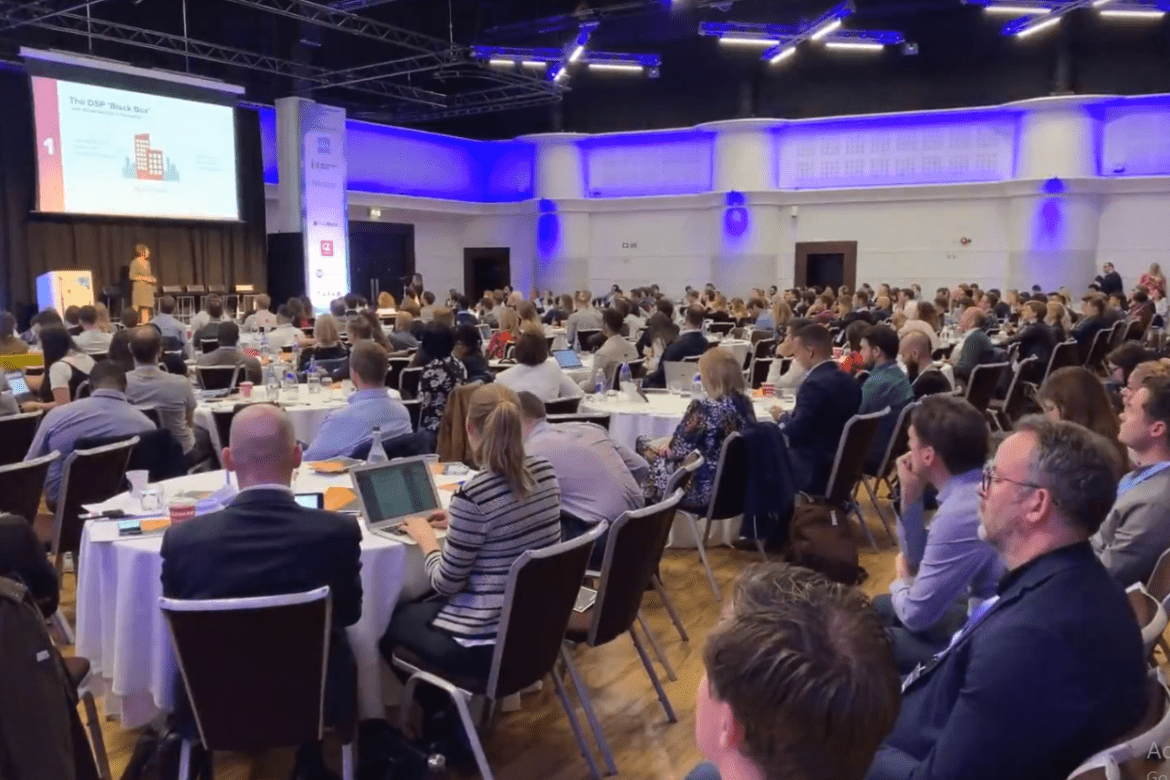|
Getting your Trinity Audio player ready...
|
Last week, leading brands, agencies, and publishers met at London’s Twickenham Stadium, the home of rugby, to scrum down and tackle key industry issues in programmatic trading.
The Programmatic Pioneers Summit comes at a timely moment – according to eMarketer nearly nine in 10 digital display ad dollars will be spent on programmatic inventory in the UK this year. Despite uncertainties surrounding the effects of GDPR and Brexit, programmatic’s march forward continues unabated.
Mobile and video programmatic spend are two key drivers in this upward trajectory. Mobile will account for 80% of programmatic digital display ad spend this year, up 23% over 2018. Video, meanwhile, will account for 43% of total programmatic display ad spend, up 34% from last year and double its proportion in 2016.
While the programmatic industry has already seen significant consolidation – which is likely to continue – the many brands present at Twickenham were screaming out for a simpler, safer and more robust eco-system. Listening to panel discussions spanning Uber, Visa, Unilever, Pepsico, Infectious Media and more, here is what publishers should be paying attention to:
- Data and audience targeting played a big part in conversations but brands are now heavily advocating audience segments by tribes. Beatrice Lindvall, Global Head of Media, Danone went further and argued that demographic information is useless, sharing this compelling video to demonstrate why:
- In-housing proved to be a hot topic with brands and agencies. Josep Hernandez, Head of Media, Pepsico said, “We are on the verge of a new era, it’s not about in-housing, it’s about upscaling and building capabilities to get greater value from your advertising investment.”
- While large brands are moving to in-housing, it’s not because they are disappointed with agencies, but rather that they feel compelled to bring more skills in-house and to work more collaboratively with third parties.
- Frédéric Martins, Head of Media & Programmatic, Europe, ING, and others talked extensively about centralizing resources. This included the standardizing of ad creatives and reporting structures in order to efficiently deliver a global solution – whilst also appreciating that localization is exceptionally important (and that any globalized solutions must work hand in hand with this).

- Oliver Gertz, Mediacom, said that advertisers should “stop buying by clicks, which are easy to fake, have high bounce rates and are a weak indicator for real engagement” and instead focus on “engagement time or visit of more than 30 seconds and measure post view conversion tracking on viewable only inventory.” He concluded that “fewer ads, more impact, and a better user experience is what we all should be aiming for.”
- There was a universal call for supply chain transparency, with Steve Chester, Director of Media, ISBA, saying “We need to have a clear and transparent view of the complete supply chain, a solution that is always on. It’s nonsense that you can’t see what happens in the supply chain. People should be prepared to say here is what I charge and the value I offer.”

- Buyers collectively seemed frustrated by an overcomplicated eco-system and Martin Kelly, CEO, Infectious Media summarised this by saying “Improved measurement will improve the client confidence to invest.”
So what should publishers learn from all this?
* Keep things simple
* Make sure you’re working with brands directly, don’t overlook in-housing
* Make sure your offering has some standardization globally and that it’s transparent
* Deliver fewer ads and aim to deliver higher impact
Andy Evans, Digital Innovator and Programmatic Advertising Consultant


